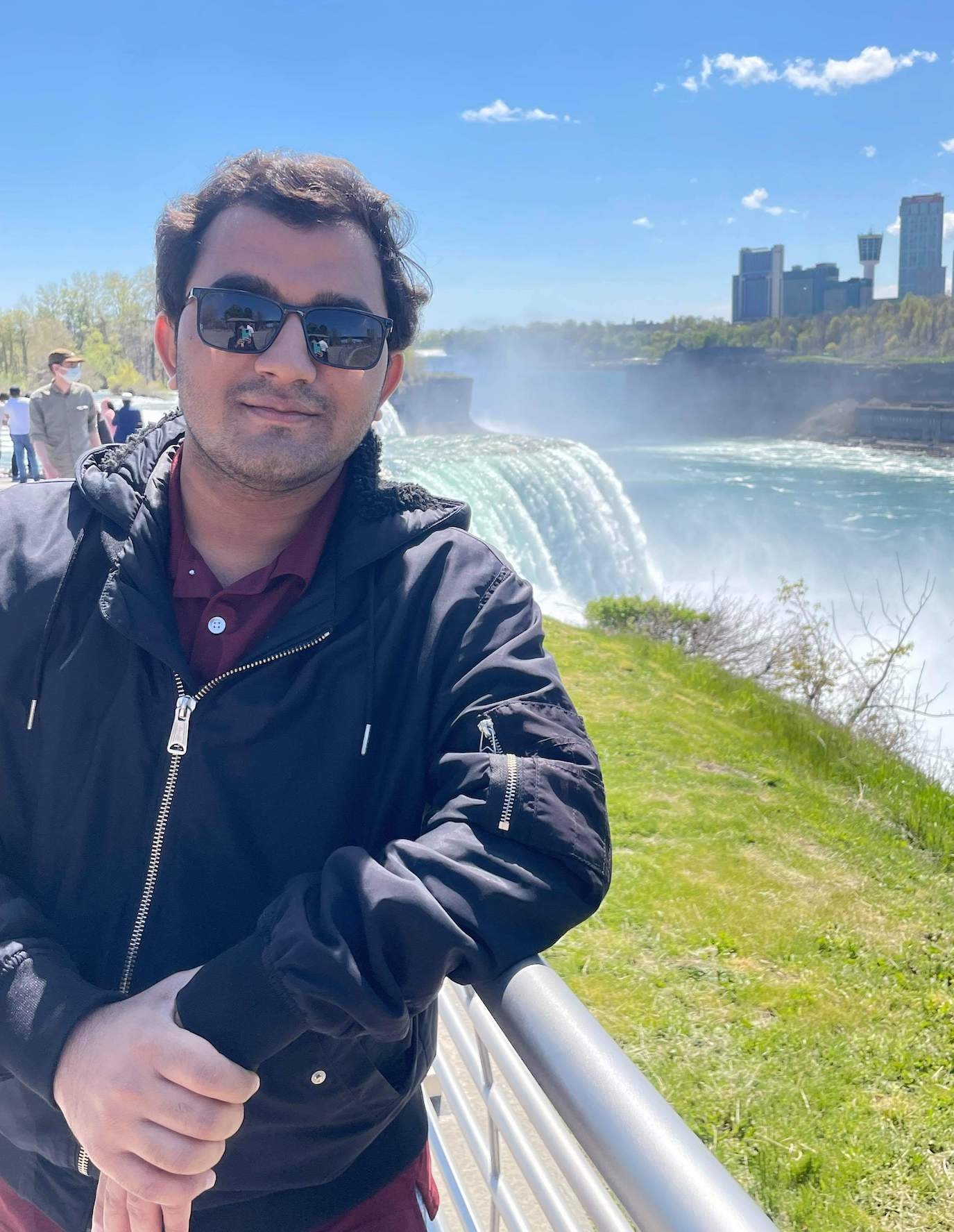Atif Ali
IGC FELLOW | Global Change Center
Ph.D. Student • Sustainable Biomaterials
Advisor : Dr. Jennifer Russell
Research Interests: Circular Economy, Sustainable Consumption and Production, Climate Change, Sustainable Energy Systems
aatif1@vt.edu • Google Scholar • LinkedIn

Atif began his undergrad education at the University of Engineering and Technology Lahore (Pakistan), graduating with a B.S. in Mechanical Engineering in 2019. He then moved to New York and obtained an M.S. in Sustainable Energy at the State University of New York College of Environmental Science and Forestry (SUNY-ESF) Syracuse in 2022. Atif’s interest in sustainable energy systems was sparked during his senior year of undergrad when he worked on his thesis project of converting municipal solid waste into electricity. Upon realizing that the waste we throw away daily can become a treasure, he found his passion in sustainability and circular economy. During his M.S. degree, he worked on different waste management and sustainability topics including bioproducts and biofuels production from various feedstocks, i.e., industrial hemp and forest biomass; developing a bioeconomy roadmap for New York State (NYS), and carbon accounting of harvested wood products in NYS. He was selected to participate in the Consortium for Advanced Bioeconomy Leadership Education to receive training for becoming a leader in the bioeconomy field. He also participated in a summer course on policymaking at the University of Massachusetts Amherst. He worked with Natural Resources Defense Council as an intern in their Clean Energy Program where he analyzed the role of federal policies on electricity markets in the Northeast US. He is now pursuing his doctorate in Circular Economy and Sustainability at Virginia Tech Blacksburg. Furthermore, he is participating in the Science, Technology, and Engineering in Policy (STEP) program at Virginia Tech.
Atif’s doctoral research is about exploring pathways for the interaction of humans, science, policy, and technology to make the mattress industry in the US more sustainable. He is using industrial ecology tools and methods, including material flow analysis (MFA) to understand and model the baseline volume of mattresses reaching the end-of-life (EOL) stage each year in the US via different pathways e.g., residential, and commercial. He will also investigate how consumer participation and awareness impact the mattresses’ EOL management i.e., whether these mattresses will end up in a landfill or a recycling facility. Additionally, the goal is to perform a life cycle analysis (LCA) and techno-economic analysis (TEA) to understand the environmental impact and economic feasibility of mattress recycling technologies in the US. He is exploring policy pathways as well by evaluating how certain state policies e.g., extended producer responsibility (EPR), have impacted and increased the recycling of mattresses in EPR states e.g., California. Furthermore, he is evaluating what parallel mechanisms exist in states without EPR e.g., Virginia. The overarching theme is to create a circular economy (CE) of mattresses.
Atif is combining knowledge and skills from engineering and environmental science (MFA, TEA, LCA), sociology (consumer participation), and public policy (EPR). He believes that the IGC training will broaden his interdisciplinary perspectives to help him view his system from different lenses, and understand science-policy interactions, and effective science communication strategies.






